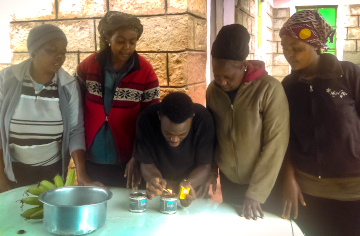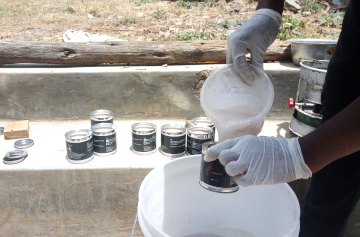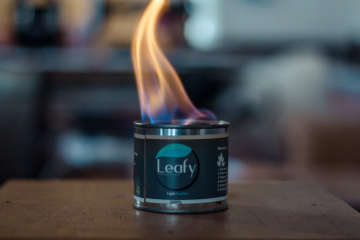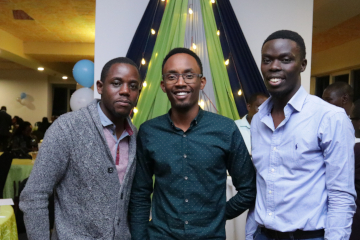Working with unconsidered and complex resources
When Peter became an uncle, he realized that a single baby uses a significant amount of diapers. He started researching the topic and soon found out that Kenya’s annual diaper consumption amounts to nearly 800 million, and the world’s annual consumption is 450 billion diapers in a single year. After learning these figures, he was appalled that these diapers generally remain unrecycled.
“There is a lack of proper channels when it comes to disposal of these diapers once they are used. A single diaper takes up to 500 years to decompose,”
Peter explains. Currently, all over the world, used diapers are dumped in landfills, which adds to the production of methane that is among the most impactful greenhouse gases. They also end up in rivers, polluting and blocking water bodies such as sewage systems, drainages and, in Kenya, even the Indian Ocean, where they are now becoming a threat to marine life. Clean fuel for better homes across Sub-Saharan Africa
At the same time, a second major problem came to the founder’s attention. Due to the use of dirty fuels, such as kerosene, paraffin, charcoal, and firewood for household purposes, the rate of CO2 emission is high all over Kenya’s less developed areas, where homes are generally very small. Burning dirty cooking fuels indoors usually generates an intense smoke that is very hazardous to human health. In order to find a solution to these pressing problems, Peter connected with two other innovative minds whom he knew from a Nano chemistry class at the University of Nairobi: Dennis and Melvin. Both of them were already working on finding a cleaner, safer, and easily affordable alternative cooking fuel source that would improve the health situation of its users. And, thus, LeafyLife was born.
Today, LeafyLife plans on producing cheap and clean cooking fuel for 20,000 African homes by 2025, mainly situated in “Kibera”, the largest slum in East Africa.
“Kibera houses 250,000 people and has the highest number of dirty fuel users in Nairobi, who have few alternatives due to the high cost of fuel. They also suffer from a lot of indoor pollution that causes 8-10% of early deaths in this area. We hope we can significantly improve this situation, because our cooking fuel burns clean and efficient,”
Melvin states. And indeed, the cooking fuel produced by LeafyLife produces 0% CO, 76% less CO2, no smoke and no soot when burning, as compared to conventionally used fuels. “One litre of our fuel gel costs £1.03 (130Ksh) and can cook 20 meals for a family of five. This is 10 percent more meals than 1 litre of Kerosene. It's also way cheaper than charcoal because a kilogram of charcoal costs around £1 but lasts only four meals maximum,”
Dennis says. At the moment, LeafyLife is selling their fuel gel in refillable and reusable “tins” that are a slightly modified version of kerosene stoves which are very common in informal settlements. This current solution helps LeafyLife customers avoid extra costs upon switching to this fuel alternative, but the start-up is also thinking of designing its own and specifically adapt fuel gel stoves in the near future. Partnering up for optimum Impact
Together with two community-based organizations, LeafyLife is currently aiming at recycling 2000 kg of used diapers per day. Additionally, with the help of two international partners, the start-up is patenting its IP, and setting up its first plant to scale up production, which will lead to the creation of new job opportunities in Sub-Saharan Africa. Since its foundation, LeafyLife is particularly focusing on working with women and youth, while actively contributing to SDG 1 (no poverty), SDG 7 (affordable and clean energy), SDG 13 (climate action), and SDG 15 (life on land).
In winter 2019, LeafyLife, formerly LeafyKe, became the winner of the Climate Launchpad’s Global Grand Final, which 6th edition was held in Amsterdam, The Netherlands. The competition saw a record number of 2,601 cleantech entrepreneurs applying for National Competitions in 53 countries and 70 Boot Camps across the globe. LeafyLife was on-boarded to the ISC3 Global Start-up Service in December 2019 and will showcase its innovation at the Investor Forum 2020 in Frankfurt am Main, Germany in October 2020.





